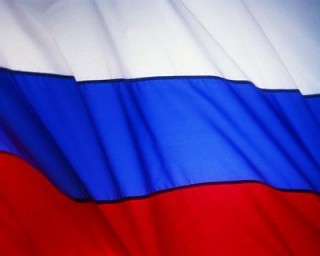
According to RT, Russians will drink 1.5 billion liters of vodka over the holidays. While RT claims that “elite” liquors like whisky are growing in popularity, KyivPost indicates that vodka is still king with 50.2% of total sales. Even if you don’t believe vodka originated in Russia, the fact that vodka is ingrained in Russian history, both as a blessing and a curse, is undeniable.
Zhanna Gagarinova, administrator of the Vodka History Museum, told RIA Novosti about the origins of vodka in Russia.
“We believe vodka, or rather homebrew, was invented by the monk Isidor in the 14th century,” says Zhanna Gagarinova, the museum’s administrator. “He was Greek by origin, but it happened at the Chudov Monastery in Moscow. Isidor had a still, but we don’t know where he got it from.”
Gagarinova goes on to tell that Tsar Ivan III made a state monopoly of “bread wine” and the national treasury started making serious cash on vodka. That steady income cemented vodka in Russian culture. By the end of the 1800’s, vodka had become standardized as a 40% ABV charcoal filtered beverage.
It’s easy to focus on vodka’s positive contributions and even easier to ignore the complex social implications of having liquor weaved into the culture of a society. Alcoholism has been an epidemic in Russia for ages. In 1914, Tsar Nicholas II issued the first alcohol prohibition preventing the retail sale of alcohol as part of a war-time effort to boost productivity, but the move ultimately caused funding problems as the treasury missed out on the profitable alcohol taxes. This continued into Soviet-era Russia until 1925 with punishments for breaking prohibition including death by firing squad.
After that, several anti-alcohol campaigns were launched in 1958, 1972, and 1985 with various goals. Ultimately, these prohibitions had little lasting effect on alcoholism after the campaigns ended. Surprisingly, there is evidence that prohibition may have helped in the short term.
Mikhail Gorbachev was responsible for the 1985 campaign, which took place at the tail end of the Soviet Union. Gorbachev’s prohibition limited the production of alcohol, limited the sale of alcohol, raised the minimum price of alcohol, and instituted various other social reforms.
The New Statesman looks at a NBER paper that traces the death rates during the periods before and after the campaign and attributes the post-prohibition rise in mortality rates to alcoholism. The mortality rate shows a sharp decline around the time of the prohibition and a massive increase in the years following. While some blame the changes in mortality rates on the tumultuous transition from communism to capitalism, the paper makes a strong case that the Gorbachev prohibition actually did make a difference.
In recent years, countries have tried increasing the price of spirits. In 2009, reports of a 75% drop in vodka consumption in Poland due to increased excise taxes seem to indicate that simply making vodka more expensive can cut down on drinking. That’s just what Russia is trying. Time will tell if the strategy works as well for Russia as it did for Poland.
Vodka has been a historic centerpiece for Russia. It has attributed to Russia’s wealth and has stolen a more precious resource: Russian lives. That’s the harsh reality of an state-wide immutable vodka culture. Russia’s strong ties with vodka make it difficult for those of us outside of Russia to understand the depth of the problem and perhaps impossible to come up with a viable solution.
Share Your Thoughts